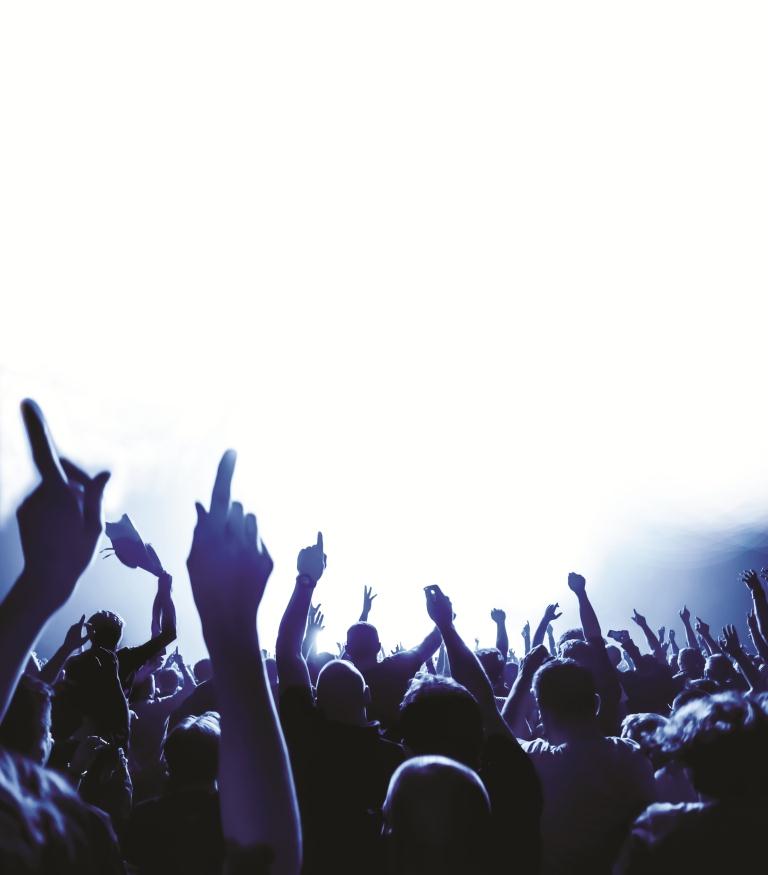Comedians are B-grade celebrities in South Africa,” says Tumi Morake, a comedian famous for her brassy honesty, stand-up shows, Comedy Central Roasts and adverts with Vodacom.
“And yet I have a lot of disposable income. A lot,” she admits.
South Africa’s entertainment industry is fast growing, and bringing in vast amounts of money. Zinhle Jiyane, known as DJ Zinhle, says: “The South African entertainment industry has proven to be one of the most influential industries and its growth is something we can’t ignore.” And she’s right.
Musicians, actors, deejays and entertainers, as well as other creative industry performers, contribute 2.9% to the GDP, according to the Cultural and Creative Industries Federation (CCIFSA), and the creative economy contributes 3.6% to the total employment.
Jay Badza, a self-described brand architect and manager of some of South Africa’s biggest stars, including Bonang Matheba, predicts the industry will grow “in leaps and bounds” in the next five years.
Loading...
“We’ve got a very healthy industry, and social media has tipped the scale to the entertainer,” says Badza.
Other experienced managers agree, such as Nomndeni Mdakhi, founder and managing director of Edits Communications, and DJ Zinhle’s manager. She predicts the industry will expand its footprint into the rest of the continent.
Morake admits that a ‘gig’, from stand-up to emceeing, to a mixture of the two, can earn a comedian of her calibre anything from R15,000 ($1,050) to R45,000 ($3,176) for an evening’s work.
Taffia Keight, a partner at Whacked Management, representing many of South Africa’s comedians, including Morake, says: “Depending on what other deals are done on an artiste’s behalf, [comedians] could earn between R12,000 ($850) and R250,000 ($17,000) a month.”
Comedy is a relatively new money-maker in the South African entertainment industry, and even in that sphere, it’s possible to earn a quarter of a million rand monthly – much of it through corporate gigs. Comedian Celeste Ntuli estimates she earns up to 40% of her monthly income through corporate emceeing and advertisements.
For a celebrity like Bonang Matheba, the numbers are much bigger. Nicknamed Queen B, Matheba is an A-lister through and through. She has over a million Instagram followers and is the first face of Revlon out of the United States – “A dream come true,” she says – and has her thumb in a lot of pies: she presents on Top Billing and Afternoon Express, hosts a radio show on Metro FM and has her own lingerie line at Woolworths. On top of this, she can earn anything from R30,000 ($2,120) to R100,000 ($7,060) for four hours’ work, depending on the client, hosting events like award shows and more.
Matheba’s flawless weave is a custom-made wig from Patrick Missile, and costs R15,000 ($1,050) – and that’s not including maintenance costs. For an event like the South African Style Awards, she says she can easily spend R55,000 ($3,882) for her look for that evening alone.
“My designer dress will probably cost around R50,000 ($3,530),” says Matheba, “And I’ll spend an additional R2,000 ($142) on my nails, and another R4,000 ($283) for hair and makeup for the evening – that includes having the makeup artiste at the event to touch me up.”
These are considered business expenses because, as Badza says, “An artiste is expected to be glitzy and glamorous.” Her luxury spends are holidays; 10-day trips to Mauritius, London, Paris and islands off the coast of Mozambique.
Other big earners are in the music industry. A DJ such as DJ Zinhle can earn up to R35,000 ($2,400) for an hour’s work, and can do up to five gigs between Friday and Sunday.
“You can just imagine how much she makes in a weekend,” says her manager Nomndeni Mdahki. And that’s just if she stays in the country – for international shows, also sold by the hour, the rate can easily go up to R50,000 ($3,530). Transport and accommodation are, naturally, included. Then there are celebrities expanding briskly into the international market, like DJ Black Coffee, who has been named several times by others in the industry as an example of a South African entertainer doing it right, with a growing international audience. He was not available for comment on this piece.
But even with these numbers, South Africa is lagging behind international entertainment industries. Nigeria is enormous, and South African celebs are clawing their way to Lagos, and not New York.
“The continent is opening up,” says Mdahki.
“Look at artiste collaborations, Channel O and the MTV Music Awards. In the end, it’s a numbers game. The more people you can bring in, the more money you can make. You want to develop a wide footprint out of South Africa.”
The trick for further growth is for celebrities to treat themselves like businesses, and use their social currency to expand their careers.
“Artistes don’t have to rely on the SABC anymore to become successful,” says Badza. With social media accounts, they communicate directly with their audience, and corporate and other clients look to those numbers to rate their popularity.
Mdahki agrees: “Social media is giving the power back to the talent.”
Morake, with over 55,000 Twitter followers, says celebrities need to remember that they are a brand. But perhaps most of all, the biggest key to growth, says Ntuli, is for South Africans to appreciate their own entertainers, like Nigerians appreciate theirs.
Loading...
